Belize’s Education, Youth, and Technology Advancements in 2024
As we wrap up 2024, News 5 is excited to bring you our digital Year in Review! This year, we're diving into the highlights and challenges of the past twelve months, all organised by themes. Join us as we look back at the stories that shaped our year…
Revolutionising Education: Belize’s National Curriculum Transformation
In 2024, Belize’s education system underwent a sweeping transformation, driven by the Ministry of Education, Culture, Science, and Technology (MoECST). At the heart of this change was the introduction of the National Curriculum Transformation, a landmark initiative aimed at overhauling the country’s approach to teaching and learning.
This initiative marked a shift from traditional rote learning to a more competency-based approach, equipping students with critical thinking, problem-solving, and life skills. Education Minister Francis Fonseca described it as a necessary step to prepare Belizean students for a rapidly changing world. “We can’t just focus on what was done in the past. Our children deserve a curriculum that prepares them for the future,” said Fonseca.
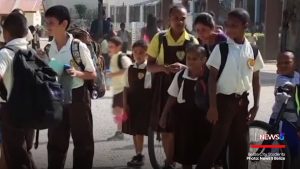
The new curriculum emphasises interactive learning, student engagement, and the incorporation of technology. It encourages personalised learning pathways, allowing students to progress at their own pace. Teachers have undergone rigorous training to adapt to the new methodologies, ensuring smooth implementation across the country’s schools.
Bridging the Digital Divide With Digital Connect Centres
One of the standout achievements for 2024 was the launch of the Caye Caulker Digital Connect Centre, a state-of-the-art facility aimed at bridging Belize’s digital divide. Funded through a partnership with the Government of Taiwan, the centre offers high-speed Wi-Fi, computers, and digital literacy training.
During the launch event, Minister of Public Utilities Michel Chebat emphasised the transformative nature of the center. “This facility is more than just a room with computers. It’s a lifeline for our youth, our businesses, and our community members,” said Chebat.
Residents of Caye Caulker, especially students and small business owners, can now access essential government services, apply for vital documents online, and enhance their digital skills. With training programs on Microsoft Office and other essential software, the Digital Connect Centre aims to foster a more digitally literate population.
Digital Connect Centres have also been launched in other municipalities, including Belmopan and Orange Walk.
Access 501: A Digital Portal to Belizean Heritage
Education and cultural preservation took centre stage with the launch of Access 501, an innovative online platform showcasing Belize’s rich history and heritage. This multimedia resource offers content in 15 categories, including Belizean history, technology, music, cultural videos, and environmental education.
The platform was described as a “revolutionary tool” by Carlos Quiroz, Coordinator at 501 Academy. “Access 501 is an attempt to provide access to every Belizean to the raw material for our imagination,” Quiroz declared at the launch event. Chief Executive Officer of the Ministry of Education, Dian Maheia, emphasised that Access 501 will serve as a crucial educational tool for teachers, students, and parents seeking Belize-specific learning materials.
The Ministry of Education sees this initiative as the starting point for the People’s Digital Archives, a project designed to document and preserve Belize’s collective story. Citizens are invited to submit personal stories, national builder profiles, and community narratives to build a shared national history.
STEAM Education at Itz’at STEAM Academy
Belize officially opened the Itz’at STEAM Academy, the country’s first high school dedicated to Science, Technology, Engineering, Arts, and Mathematics (STEAM) education. Prime Minister John Briceño, Education Minister Francis Fonseca, and other officials attended the ribbon-cutting ceremony, highlighting its significance in the country’s development agenda.
The academy, built to Excellence in Design for Greater Efficiency (EDGE) standards, offers modern facilities, including bioengineering and robotics labs, media studios, and collaborative learning spaces. Its hands-on learning approach prepares students to participate in Belize’s growing “blue, green, and orange” economies.
John Newport, the then Principal of Itz’at, stated, “This school will empower students to engage in transformative mathematics, robotics, and creative arts. It will ensure that young Belizeans are ready to create solutions, not just seek them.” The academy has already begun offering programs where students design robots, develop creative media, and engage in project-based learning. Christine Coc is the acting principal.
Teacher Shortages, Licensing Delays, and Parental Involvement
While 2024 saw significant strides in education, it also faced challenges. Teacher shortages became a growing concern as many educators pursued better-paying opportunities abroad. Resignations were compounded by delays in the Ministry of Education’s processing of teacher licenses, which are now contingent on Continuous Professional Development (CPD) hours.
According to Belize National Teachers Union (BNTU) President Nadia Caliz, over 130 teachers were affected by licensing delays. Some teachers claimed that their CPD certificates, required to obtain a teaching license, had not been processed by the Teacher Learning Institute (TLI). However, the CEO of the Ministry of Education, Dian Maheia, reported that 80% of teachers had met the licensing requirements, and the remaining cases were under review.
The teacher shortage forced some schools, such as Our Lady of Lourdes RC in Maskall, to adapt by having parents step in as temporary teachers. Principal Herman Ramirez shared his frustration, stating, “It’s challenging when three teachers are missing, and we have to make do with the staff we have. Parents have been helpful, but it’s not a sustainable solution.”
Teachers were also upset over unpaid allowances and increments. In a meeting, teachers voted to demonstrate in early 2025—weeks before the next general election.
Students Sent Home Over Fees, Hair Policies Spark Debate
The education sector saw moments of controversy in 2024. Roughly 30 students at Orange Walk ITVET were sent home for failing to pay school fees, despite Ministry of Education policy forbidding this practice. Education Minister Francis Fonseca clarified that no student should be removed from the classroom due to unpaid fees and urged school administrators to work out payment plans with parents.
Separately, a debate over hairstyle policies erupted after several students at Anglican Cathedral College (ACC) were sent home for their hair length and braids. Minister Fonseca denounced the move, calling it “unlawful” and asserting that students’ constitutional rights must be protected. This issue reignited national conversations on cultural expression, school rules, and children’s rights.
Youth Engagement and Empowerment
Belize’s youth were empowered through creative platforms like the newly opened podcast studio in Port Loyola. Spearheaded by youth ambassadors in collaboration with the U.S. Embassy and the Love Foundation, the studio offers a space where young people can create podcasts on issues affecting them, such as mental health, gender equality, and community development.
One of the ambassadors, Devannie Apolonio, shared how she channelled her grief after losing her sister into the project. “This space is about having real conversations with youth and providing them with a place to be heard,” said Apolonio. The studio’s opening marked a significant step toward youth empowerment, providing young people with the tools to shape social narratives.
Child Stimulation Month 2024: Inspiring the Next Generation
March saw Belize’s youngest learners participate in Child Stimulation Month, a national initiative to promote early childhood education. This is one of the highly anticipated events for tens of thousands of students across the country. Students from across the country dressed as police officers, doctors, firefighters, and other professionals as they paraded through the streets.
The event served as a visual representation of Belize’s commitment to nurturing future leaders. Principal Education Officer Sebastian Cab underscored the importance of this early education initiative, stating, “When children see themselves as doctors and engineers, they begin to believe it.”
The Ministry of Education also launched a new preschool curriculum set to roll out in 2025. Minister of State for Education Dr. Louis Zabaneh said the curriculum would adopt a “learning-through-play” approach, building essential competencies in literacy, numeracy, and social-emotional learning.





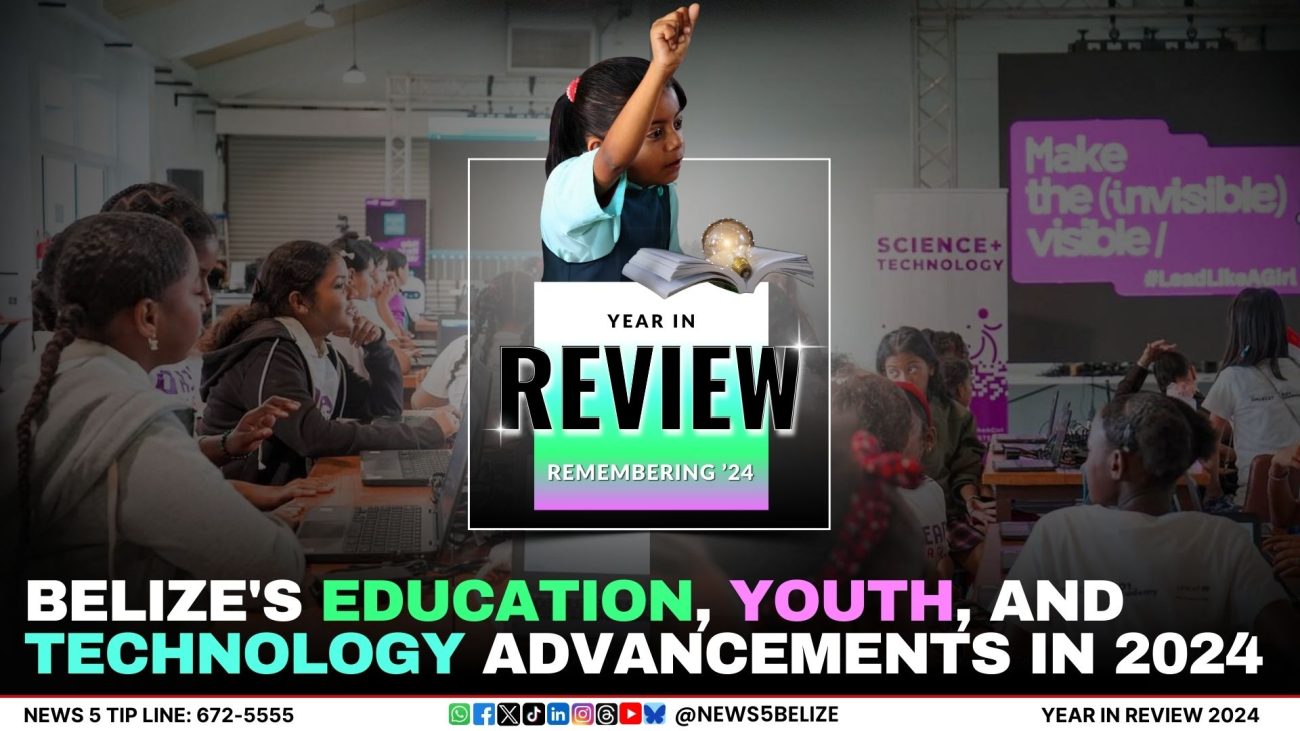

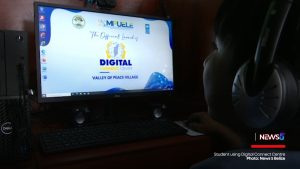

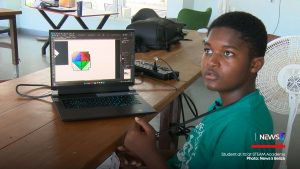
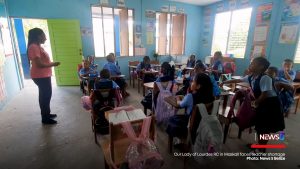

Facebook Comments